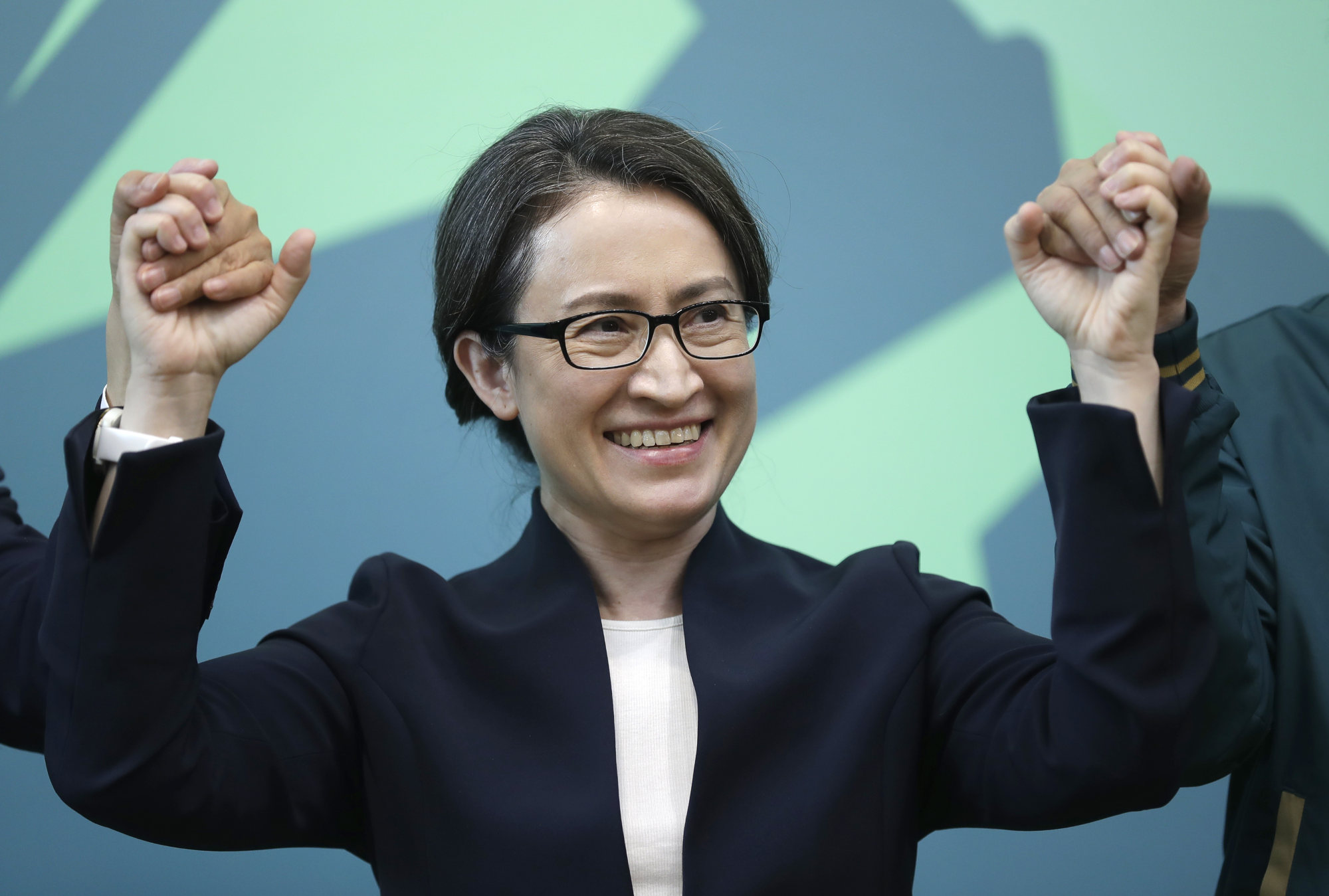Most Taiwanese do not view US as ‘trustworthy’ but majority believe in its security commitment: survey
[ad_1]
However, unlike the mixed views about the US, perceptions of China were decidedly dismal. A mere 9.3 per cent of those surveyed agreed that the Asian giant is “trustworthy”, slightly lower than last year’s 9.4 per cent and 13.5 per cent in 2021.
Biden reaffirms stance on Taiwan in meeting with Xi
Biden reaffirms stance on Taiwan in meeting with Xi
In the survey, more than 65 per cent of respondents expressed support for American arms sales to Taiwan, and about 57 per cent believed the US would use force to help Taiwan if Beijing tried to change the status quo unilaterally.
“What struck me most is the gap between the US’s overall credibility and also the credibility of the US security commitment to Taiwan,” said Pan.
“Obviously, more people are willing to assign more credibility to the US security commitment to Taiwan” than find that the US is credible overall, she added.

On the question of whether Taiwan and China belong to the same country, about 78 per cent of those polled said they do not.
Among Kuomintang party members or supporters – who favour closer ties with Beijing – more than 50 per cent said Taiwan and China are not part of the same country, noted James Lee, another survey researcher, affiliated with Academia Sinica in Taipei.
“This highlights the fact that it’s important to not just look at what the KMT says as a party,” Lee said. “It seems like what the KMT says as a party may not be fully in sync with what its support base believes.”
In contrast with the KMT, or the Nationalist Party of China, the ruling Democratic Progressive Party, has leaned towards the establishment of an independent Taiwan.
‘China will eventually, inevitably be reunified’ with Taiwan, Xi tells Biden
‘China will eventually, inevitably be reunified’ with Taiwan, Xi tells Biden
Taiwan’s presidential election, scheduled for January 13, is expected to focus on local health and welfare issues as well as relations with Beijing and the island’s sovereignty.
The election could prove especially consequential as regional tensions mount, China’s military posture expands and the number of Chinese military sorties around the island increase, according to a report by the Asia Society Policy Institute.
“With geopolitical tensions on the rise, this electoral contest could mark a turning point for the island,” said Simona Grano, the report’s author.
“The winning party will determine the trajectory of future relations between China, Taiwan and the United States.”
Shifting political alliances have made predicting the election outcome difficult. Lai of the DPP has led in polling for much of this year against his main opponent, Hou Yu-ih of the Kuomintang party.

In the past, Beijing has sought to intimidate Taiwanese voters into casting ballots for the KMT with verbal threats and military exercises. But these tactics have often backfired and handed victory to the DPP.
“The PRC seems to have learned its lesson, and rather than trying to instil fear in the Taiwanese people, it is pursuing a two-pronged approach,” according to the report titled “The 2024 Taiwanese Elections: A Primer”.
What is the state of mainland China’s business environment for Taiwanese firms?
What is the state of mainland China’s business environment for Taiwanese firms?
As the election approaches, Beijing will try to deepen Taiwan’s political divisions by portraying the DPP as incompetent, the report predicted.
And if a DPP win appears inevitable, Beijing will escalate its rhetoric on the risk of war, the report said, hoping to push Taiwanese voters to back the more China-friendly KMT.
On Sunday, Taipei reported renewed Chinese military activity around the island as nine military aircraft crossed the Taiwan Strait’s sensitive median line and warships carried out “combat readiness patrols”.
“The conflict with China has reached a new dimension,” said Grano. “And given the current geopolitical situation, especially amid the Russian invasion of Ukraine, these elections will be closely monitored at the international level.”
[ad_2]
Source link





